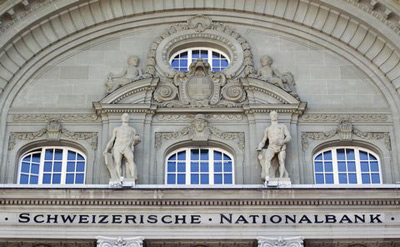WORLDTEMPUS – 6 October 2011
Tom Mulraney
Earlier this year as the economies of the North American and European juggernauts continued to flounder, institutional investors took refuge in “safe haven” currencies such as the Swiss franc, artificially driving its value and causing significant alarm in an economy that derives a large part of its income from exports. As a result many companies, including Switzerland's iconic luxury watchmakers, have seen their margins and profits come under increasing pressure from unfavorable currency exchanges and increased costs of raw materials leading to calls for action to be taken.
At first it was hoped that pumping new cash into the market combined with negative interest rates would be sufficient to deter additional investment by spooked investors in Europe, but it soon became clear that more severe measures would be required. And so, in what some have dubbed a radical move, Switzerland's central bank, SNB, shocked global markets in September by setting a cap on the franc's exchange rate against the euro of a minimum CHF 1.20 and declaring that it would take all action necessary to enforce this initiative including buying other currencies in unlimited quantities.

A step in the right direction?
Many of the country's exporters have welcomed this move as a definite step in the right direction but recognize the battle is far from won. In a recent interview with Dow Jones Newswires, Compagnie Financière Richemont SA's executive chairman and chief executive Johann Rupert voiced his support saying, “It would be phenomenal for Swiss industry. It's a very brave move.”
The market certainly seemed to agree with Swiss stocks gaining on the news of relief for the country's exporters. However, Rupert also went on to acknowledge that the government will be forced to pay a high cost to protect its position and expressed concern about the lack of political will to tackle the bigger debt issues facing Europe and North America.

Market analysts have also questioned SNB's ability to maintain this aggressive strategy as fears about the global economy persist and warn that the path ahead is fraught with risk. The outcome remains closely tied to the unfolding European debt crisis and could spell disaster if things continue to deteriorate.
The consensus seems to be that at CHF1.20 against the euro, the Franc is still overvalued. At this stage, therefore, it would appear that SNB is relying on the weakening of the European debt crisis to push the franc to 1.30 or 1.40, which analysts consider a fair value against the euro. Whether this actually happens or not is anyone's guess at the moment as global markets continue to be roiled by uncertainty in the euro zone.
We've been here before
Proponents of the decision, however, point to the success of a similar move in 1978 when the franc was pegged against the German mark and suggest that SNB has a strong chance of replicating this success if it is able to closely control its money market operations.
And while this same move thirty years ago caused a decade of rampant inflation in the Swiss economy, SNB has been quick to reassure investors and citizens alike that this same risk does not exist this time around, emphatically stating in a recent release to the market that, “In the foreseeable future, there is no risk of inflation in Switzerland. There are, however, downside risks for price stability should the Swiss franc not weaken further.”

The bigger picture
Nevertheless, with so much insecurity persisting in the world's largest economies, the possible outcomes of any decisive action taken remains largely uncertain. What is clear however is that an overvalued Franc is just one of the many problems facing Switzerland's luxury watchmakers who find themselves again operating in an increasingly volatile global marketplace.




